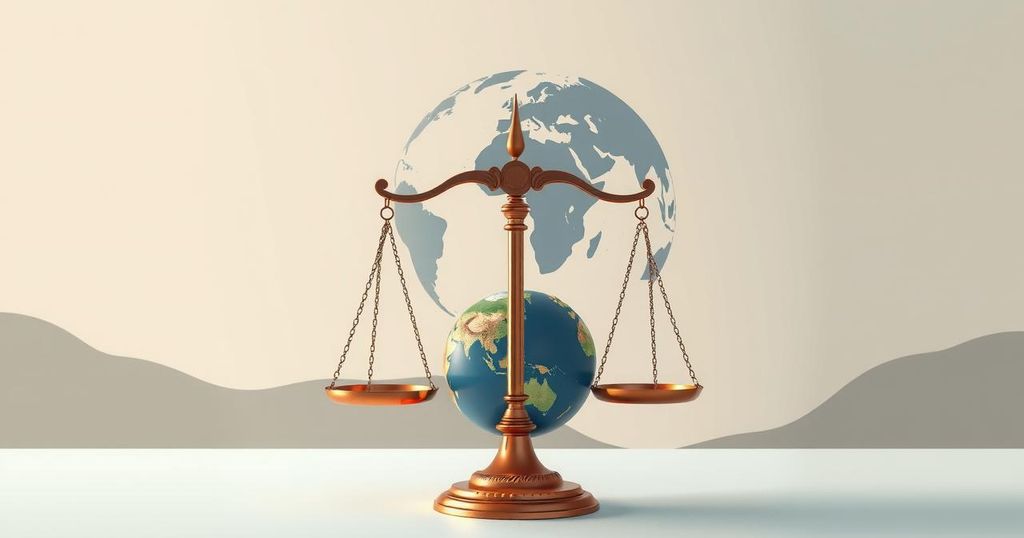Guyana Appeals to UN Court Amidst Venezuela’s Territorial Claims

Guyana will seek intervention from the UN’s top court regarding Venezuela’s plans to elect a governor for the disputed Essequibo region, which Venezuela claims. This action follows a December 2022 agreement aimed at preventing conflict, emphasizing that Venezuelan elections in the territory would violate international law. The dispute, stemming from colonial borders and exacerbated by recent oil discoveries, highlights ongoing tensions between the two nations.
The government of Guyana has announced plans to seek assistance from the United Nations’ top court, targeting Venezuela’s intentions to appoint a governor for the contested Essequibo region. This area, rich in natural resources, is claimed by Venezuela as part of its territory. The Guyanese foreign ministry contends that such elections would breach a December 2022 agreement aimed at maintaining peace and preventing tensions between the two countries.
According to the foreign ministry’s statement, the residents of Essequibo are Guyanese citizens, residing within Guyana’s sovereign territory. It further emphasized that any Venezuelan attempts to organize elections in Essequibo would contravene fundamental principles of international law, specifically those outlined in the U.N. Charter. Guyana is prepared to petition the International Court of Justice in The Netherlands for urgent measures should Venezuela proceed with its plans.
Venezuela considers the Essequibo region part of its territory, a claim dating back to colonial times when boundaries were defined during Spanish rule. The nation has historically rejected the 1899 border established by international arbitration, which recognized the region as part of British Guiana, now Guyana. After prolonged unsuccessful negotiations, Guyana brought the issue to the world court in 2018, affirming the validity of the 1899 border.
The current tensions arise following significant oil and gas discoveries off the coast of Guyana in 2015, which have heightened Venezuela’s interest in the Essequibo region. Meanwhile, a recent dispute involved Guyana protesting the Venezuelan military’s completion of a bridge on Guyanese territory, asserting it as an infringement of its sovereignty. Relations had improved during previous periods, particularly after a show of military support from the United States for Guyana.
The ongoing territorial dispute between Guyana and Venezuela primarily centers on the Essequibo region, which is rich in oil and mineral resources. The roots of the conflict trace back to colonial-era boundaries, with Venezuela asserting ownership based on historical claims while Guyana maintains sovereignty as established by a 1899 arbitration. The discovery of large oil reserves has intensified these claims and escalated tensions between the two countries, challenging diplomatic relations and necessitating international legal intervention.
Guyana’s decision to seek help from the International Court of Justice underscores the severity of the territorial dispute with Venezuela over the Essequibo region. Both nations have historical claims asserting their rights, yet Venezuela’s recent actions disrupt established agreements. The international community’s role in resolving the dispute will be crucial for maintaining regional stability. Given the escalating tensions, an effective resolution will be imperative to ensure peace.
Original Source: abcnews.go.com







